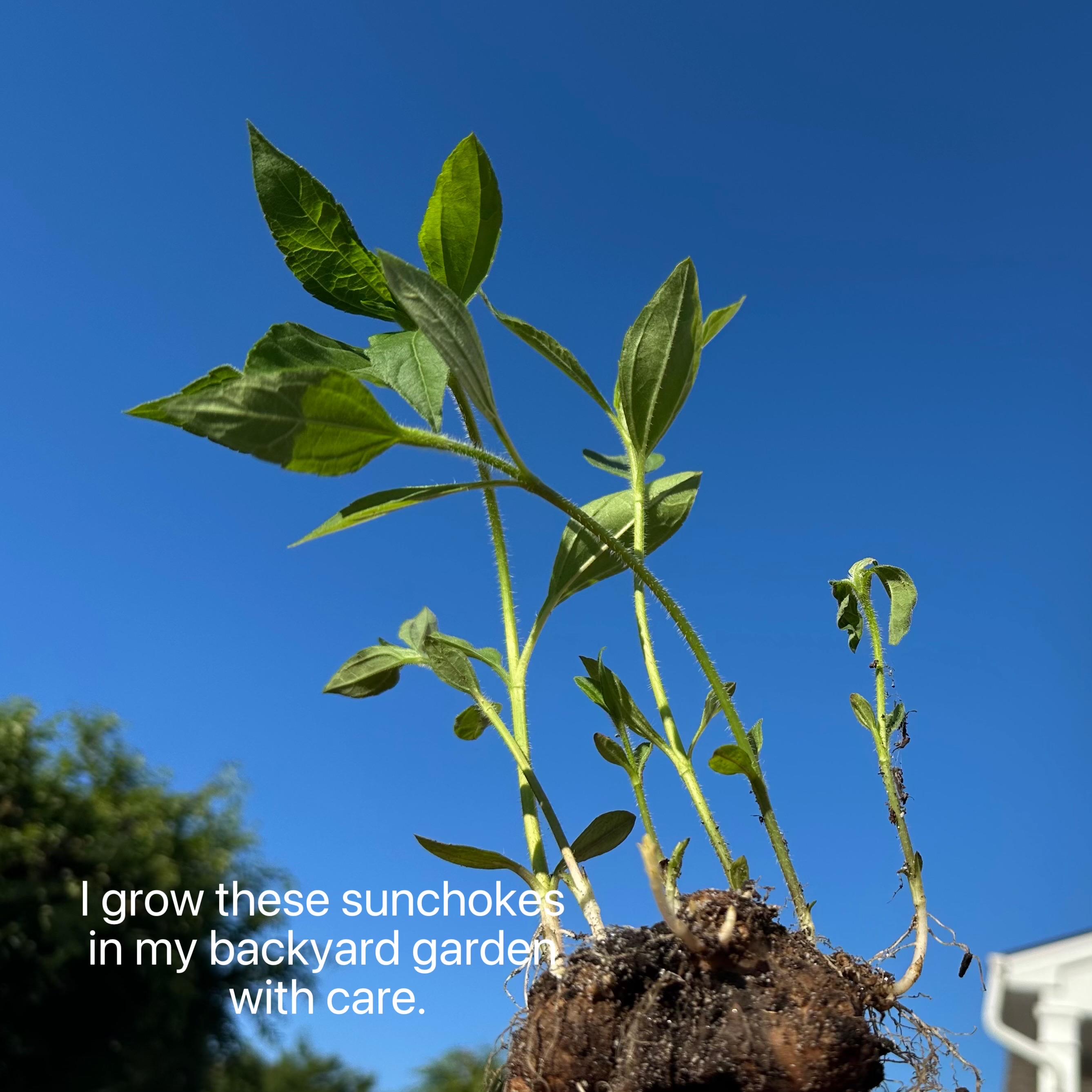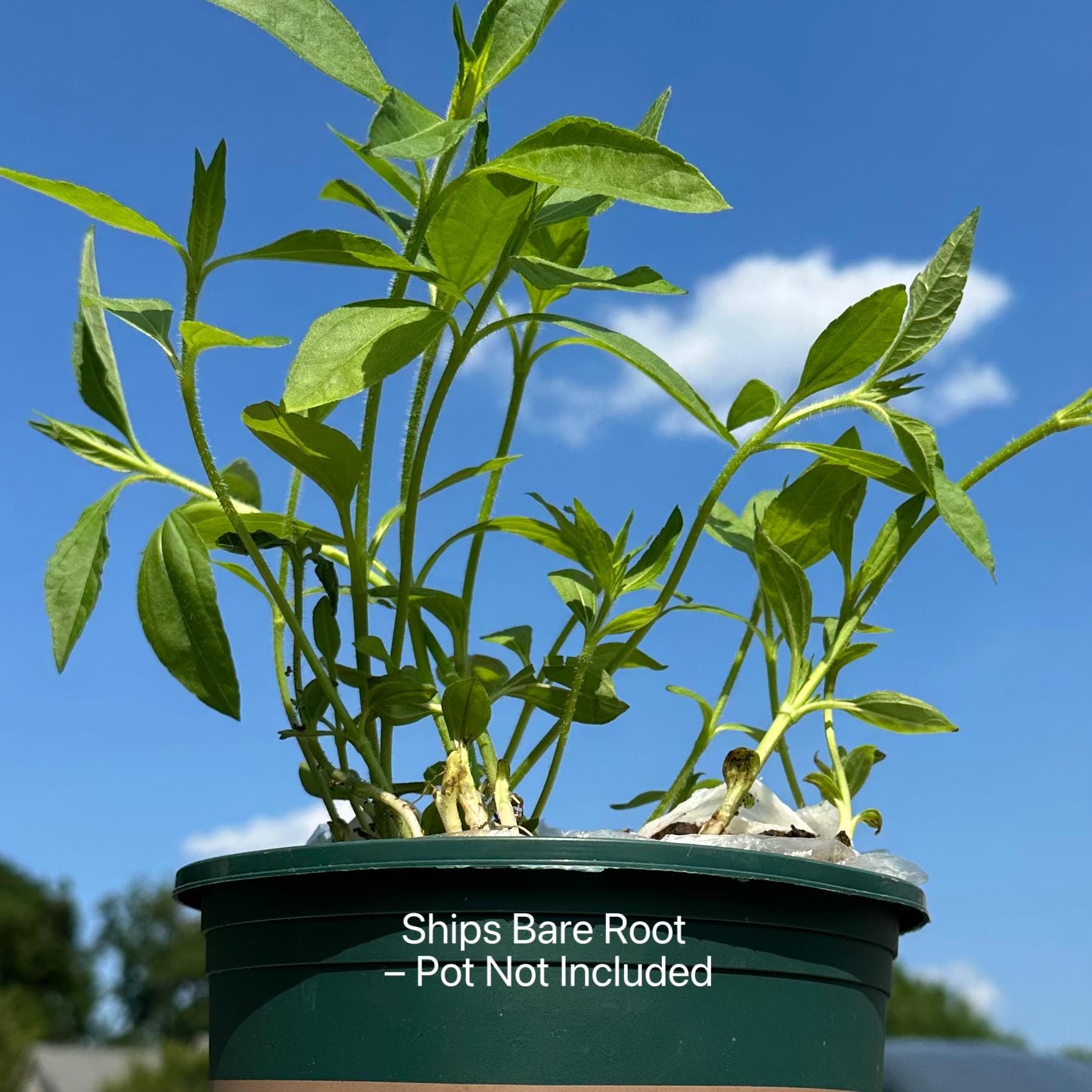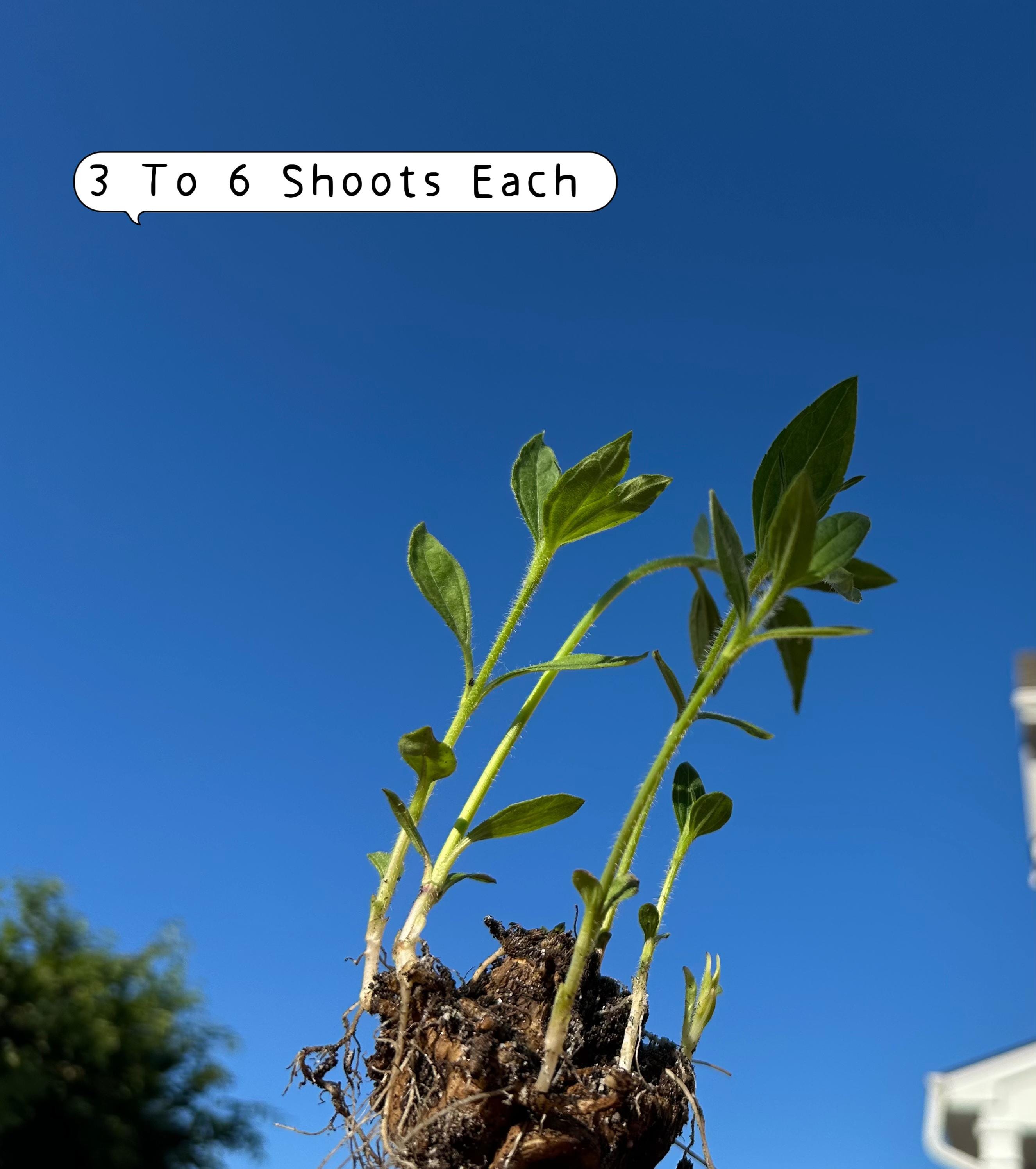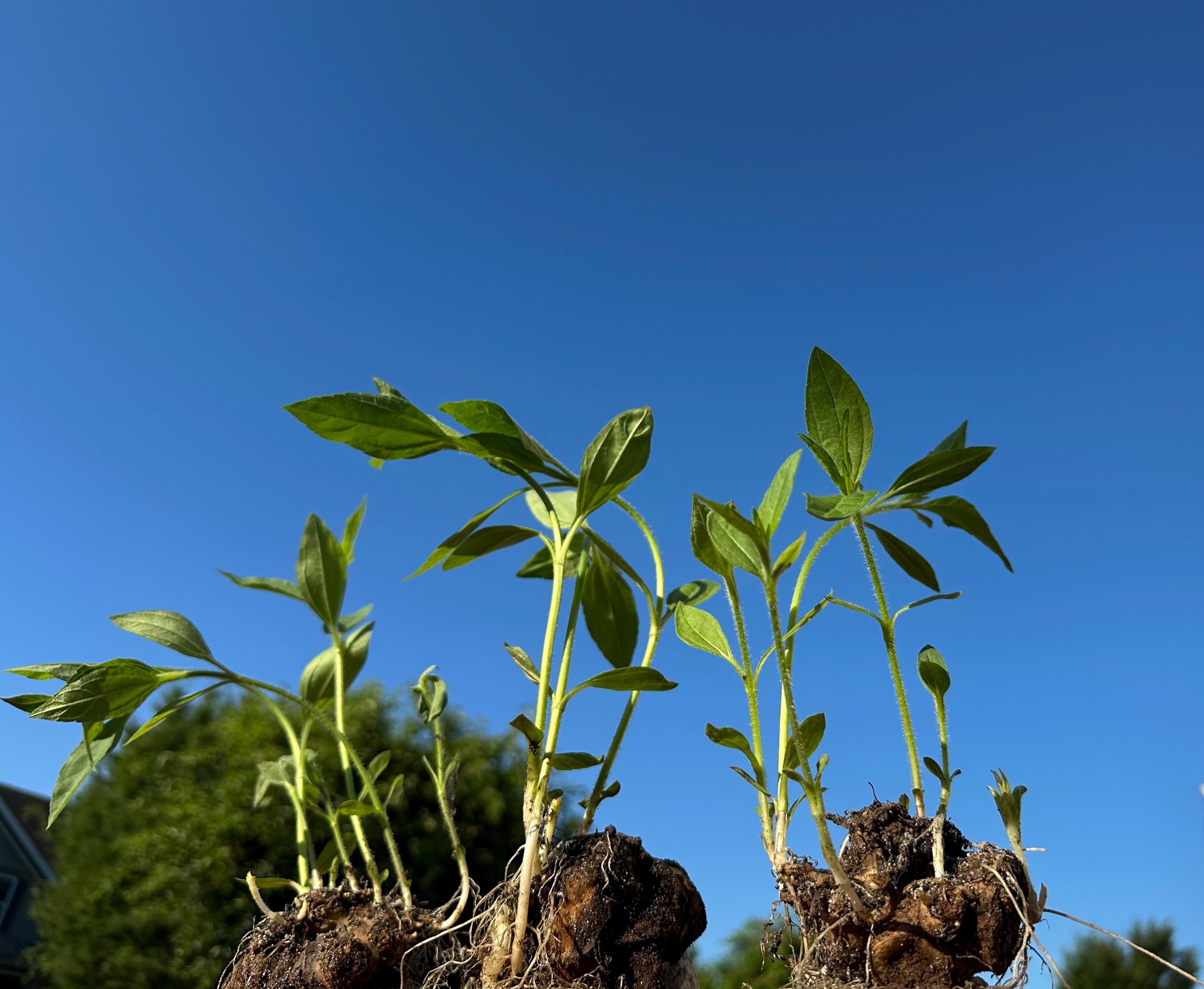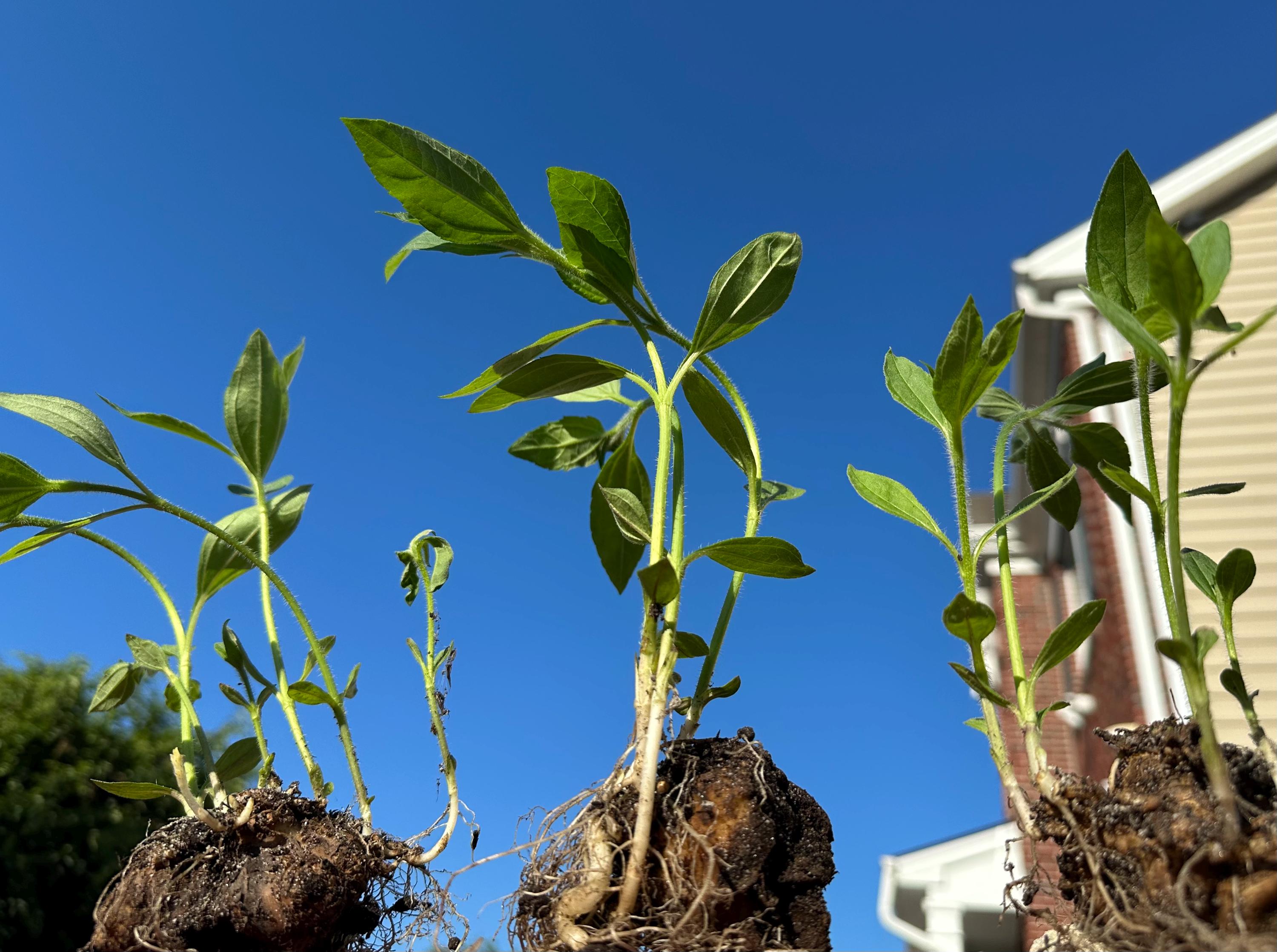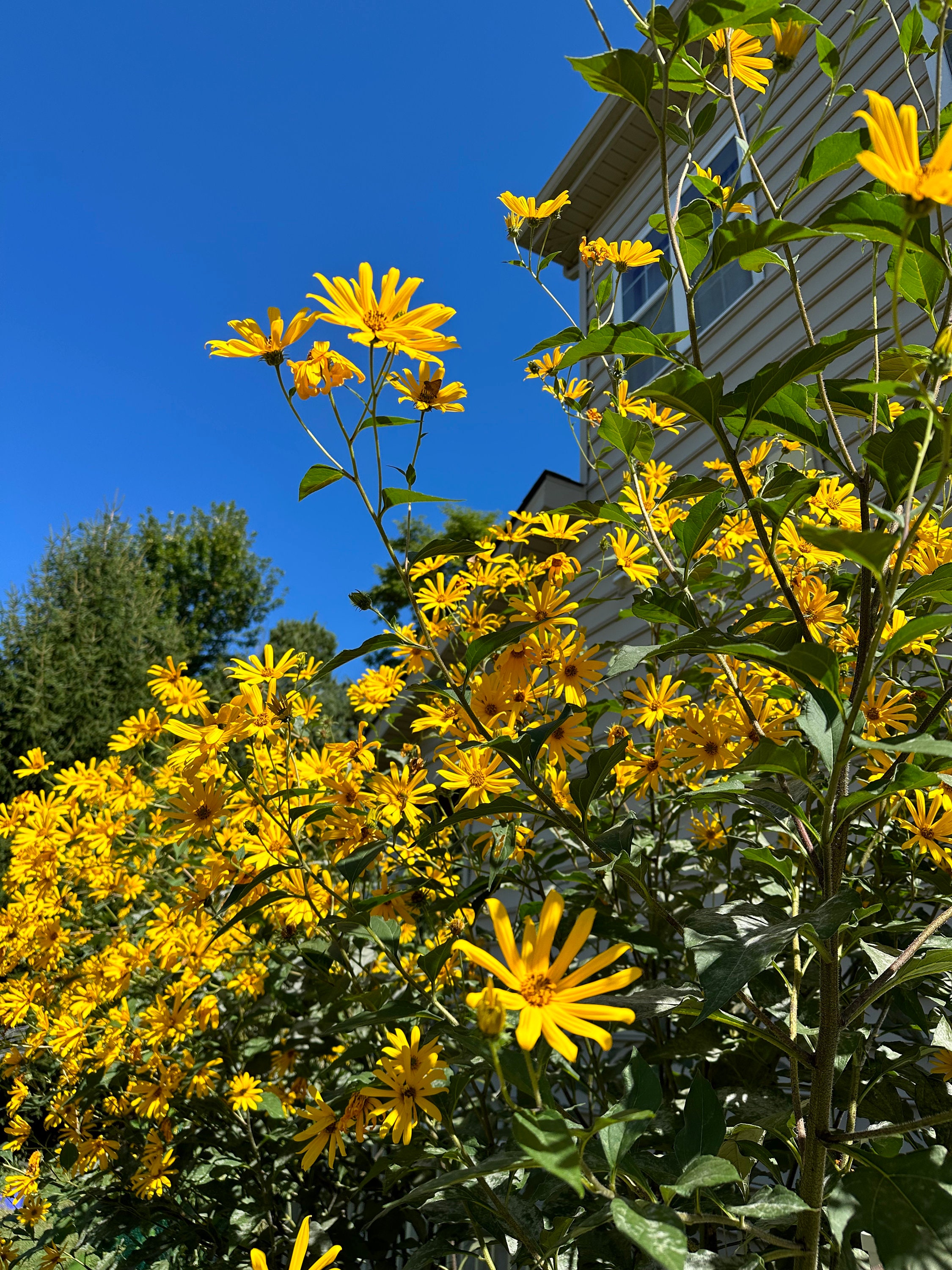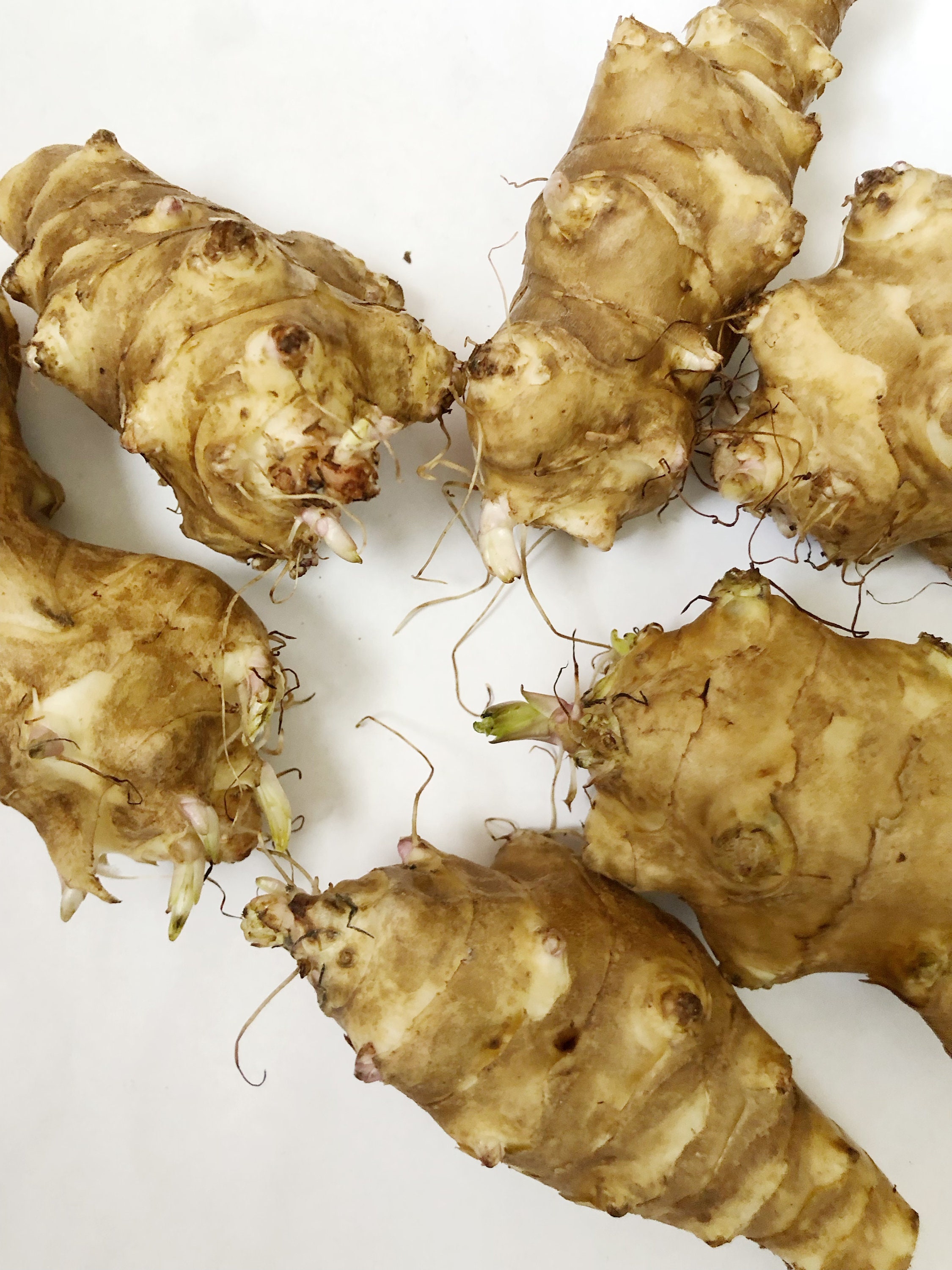Jerusalem Artichoke Starter Plants – 3 Live Tubers with 3–6 Green Shoots – Also Known as Sunchoke – Organic Grown
$29.90
Details
What You’ll Receive:
* 3 live, sprouted Jerusalem artichoke tubers
* Each tuber has 3 to 6 healthy, green shoots, ready to thrive in your garden
* Organically grown and untreated
* Ships bare root, carefully packed for safe delivery
Easy to Grow:
1. Plant in full sun, about 4–5 inches deep
2. Water regularly after planting
3. Fast-growing, low-maintenance, and perennial
4. Produces beautiful flowers and edible tubers in the fall
5. Plant as soon as possible after arrival for best results
6. Growing instructions included
The Jerusalem artichoke (Helianthus tuberosus), also called sunroot, sunchoke, wild sunflower, topinambur, or earth apple, is a species of sunflower native to central North America. It is cultivated widely across the temperate zone for its tuber, which is used as a root vegetable. The flowers are yellow and produced in capitate flowerheads, which are 5–10 cm (2.0–3.9 in) in diameter, with 10–20 ray florets and 60 or more small disc florets. (resource from Wikipedia)
The tubers are often elongated and uneven, typically 7.5–10 cm (3.0–3.9 in) long and 3–5 cm (1.2–2.0 in) thick, and vaguely resembling a ginger root in appearance, with a crisp and crunchy texture when raw. They vary in color from pale brown to white, red, or purple. (resource from Wikipedia)
They are best planted in soil that has warmed to 50°F (10°C). In warm-winter regions, sunchokes can be planted in winter. Sunchokes require 110 to 150 days to reach harvest.
The sunchoke is a hardy perennial that grows from 5 to 10 feet tall. The plant has rough-textured leaves 4 to 8 inches (10-20cm) long and is topped with small yellow flowers 2 to 3 inches (5-7cm) across. Sunchokes will survive a hard freeze if protected by a layer of soil or mulch. Tubers rapidly spread and divide but can be controlled by root barriers.
The name Jerusalem artichoke is a misnomer: the plant is not related to the artichoke, though the sunchoke’s flavor may be reminiscent of the artichoke. The plant is not from Jerusalem: the name is probably derived from the Italian name for sunflower, girasole, which means turning to the sun.
Plant sunchokes in full sun. The sunchoke prefers loose, well-drained soil but will grow almost anywhere.
Companion plants. Corn, rhubarb, peanuts. Avoid planting sunchokes with tomatoes.
Shipping from United States
Processing time
2 business days
Customs and import taxes
Buyers are responsible for any customs and import taxes that may apply. I'm not responsible for delays due to customs.
